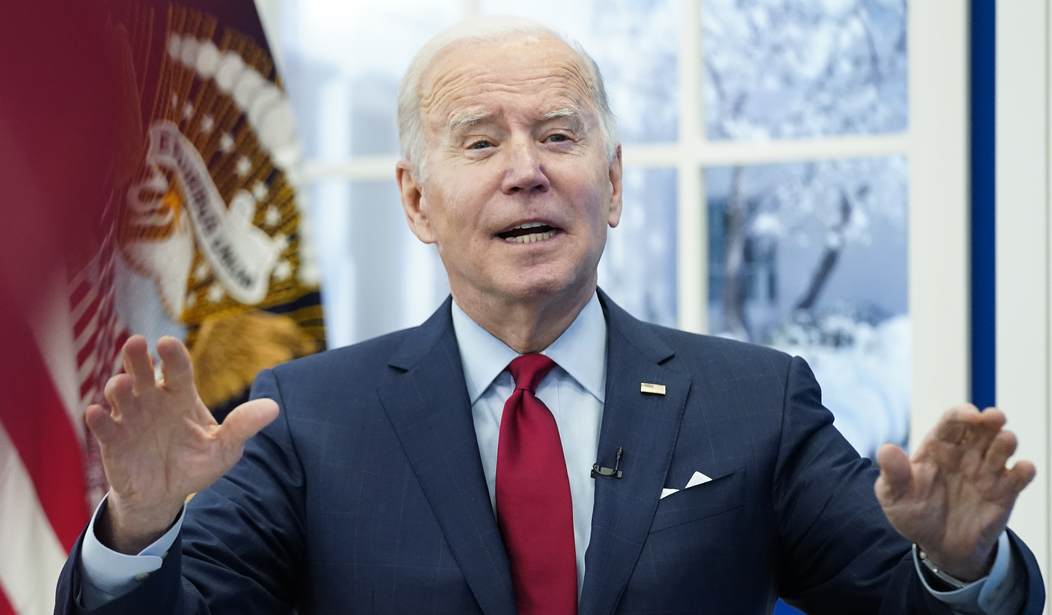During his once-in-a-blue-moon press conference on Thursday, Joe Biden graciously invited Russian President Vladimir Putin to invade Ukraine.
After warning Putin that a full-scale invasion would bring down the thunder from NATO and the U.S., Biden appeared to greenlight a “minor incursion” by Moscow.
“It depends on what it does,” Biden said. “It’s one thing if it’s a minor incursion and then we have to end up having to fight about what to do and not do, etcetera.”
Fight with who? Why, other NATO nations, of course. And just like that, NATO’s solidarity crumbled in the face of ludicrously weak American leadership.
The greatest tension over the correct response is between the US and Germany, hence the visit of the US secretary of state, Antony Blinken, to Berlin on Thursday before a meeting with Russian officials in Geneva.
Some of the differences are manageable. Neither of the two main sides of the German coalition are willing to sell arms to Ukraine, saying it is longstanding German policy, based on its war experience, not to send weapons into a conflict zone. The current vice-chancellor, Robert Habeck, caused a storm last year when he suggested, against that policy, that the Greens might provide defensive arms, but he beat a fast retreat. By contrast the US, the UK and Turkey do supply arms.
It’s not just Germany that is shying away from the kind of sanctions that would really bite and affect the Russian economy. Most northern European countries are heavily dependent on Russian oil and gas. Sanctioning those would have a serious effect on their economies.
Giving Putin an “out” by inviting him to only invade a little bit reveals a president who, for all the hype about his “vast” foreign policy experience, doesn’t know enough not to let the other team see his playbook.
In the end, White House Press Secretary Jen Psaki bailed him out.
The White House later put out a statement by press secretary Jen Psaki clarifying that any kind Russian military incursion into Ukraine would be met with a “severe” response. She appeared to indicate that a lesser “reciprocal” response would greet more-limited actions, like “cyberattacks and paramilitary tactics.”
“President Biden has been clear with the Russian President: If any Russian military forces move across the Ukrainian border, that’s a renewed invasion, and it will be met with a swift, severe, and united response from the United States and our Allies,” Psaki said. “President Biden also knows from long experience that the Russians have an extensive playbook of aggression short of military action, including cyberattacks and paramilitary tactics. And he affirmed today that those acts of Russian aggression will be met with a decisive, reciprocal, and united response.”
This statement isn’t a “clarification.” It’s a rewrite.
Related: Is Biden Inviting the Very War in Ukraine We Don’t Want to Fight?
It seems pretty clear that Vladimir Putin has Joe Biden and NATO right where he wants them; timid, unsure, hesitant, and fearful.
In what contempt Putin must hold our president and NATO. And the danger is that Putin will continue to push — in Ukraine, the Balkans, and then Poland, the Czech Republic, Hungary — until someone pushes back.
Not this president. Not this alliance.










Join the conversation as a VIP Member